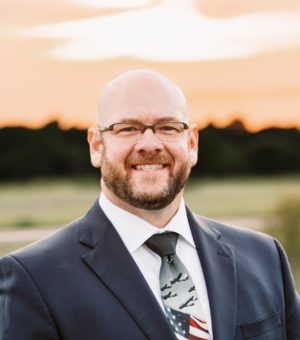
Prioritizing Prison over Substance Use Treatment Costs Kansans Safety and Money
Editor’s Note: A version of this opinion piece ran in the Feb. 25 edition of The Wichita Eagle.
People in our state need help treating their addictions. But right now, we’re incentivizing committing serious crimes, as a person must be convicted of a felony to access state treatment for drug addiction. House Bill 2026, already passed in the House, will help correct this issue, allowing people to receive treatment before conviction. HB 2146, currently under consideration, will strengthen the system further by updating our drug sentencing grid to target more people struggling with addiction and funnel them into treatment sooner.
Research consistently shows that community-based treatment can reduce drug use and drug-related criminal behavior. While a prison sentence for a drug offense cost $26,188 in 2019, a sentence to existing treatment cost just $3,143. The bottom line: Not only is treatment a more cost-effective use of taxpayer dollars than prison, but it works.
Prioritizing treatment instead of prison is key to ensuring healthy and safe Kansas communities, but it’s only part of the equation. We need to give judges and probation and parole officers more support when it comes to helping people change their behavior by pursuing evidence-based supervision practices.
We also need to help people returning home from prison access employment, food assistance, housing and education so they can maintain drug-free lives.
These bills would help reduce these [employment] barriers so people can afford to pay their fees, fines and restitution to victims, succeed on community supervision, and stay out of prison.
Many other states have made similar improvements with much success. In North Carolina, lawmakers lowered sentence lengths for probation and parole violations while bolstering access to treatment and giving community supervision officers more flexibility to help people with addictions. As a result, the state saw a 25% drop in prison admissions for supervision violations, subsequently averting more than $543 million in taxpayer costs. The state was able to close 11 small prisons and reinvest savings in 175 additional probation and parole officers, strengthening the community supervision system and improving outcomes across the board. Meanwhile, reported crime in the state declined 29 percent from 2011 to 2019.
States like North Carolina realized that it’s fiscally irresponsible to waste millions keeping people incarcerated for low-level offenses or violations when prison beds should be prioritized for people who commit the most serious crimes. Kansas can do the same.
Passing these bills will give people the tools they need to become productive, law-abiding members of our communities while relieving the burden on our taxpayers.
About the Author

Arkansas policymakers have long expressed concerns about the state’s high recidivism rate. Over the past 10 years, an…
Read MoreIn April 2025, Arkansas Governor Sarah Huckabee Sanders signed a package of bipartisan criminal justice legislation into law,…
Read More Explainer: Key Findings and Options from Arkansas’s Justice Reinvestment Initiative
Explainer: Key Findings and Options from Arkansas’s Justice Reinvestment Initiative
Arkansas policymakers have long expressed concerns about the state’s high recidivism rate.…
Read More Explainer: How a New Law in Arkansas Tackles Crime, Recidivism, and Community Supervision Challenges
Explainer: How a New Law in Arkansas Tackles Crime, Recidivism, and Community Supervision Challenges
In April 2025, Arkansas Governor Sarah Huckabee Sanders signed a package of…
Read More









